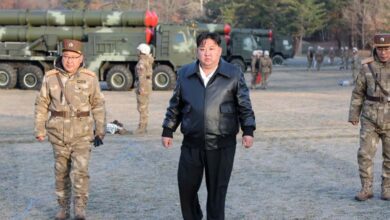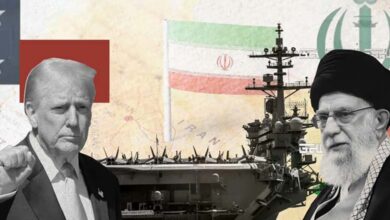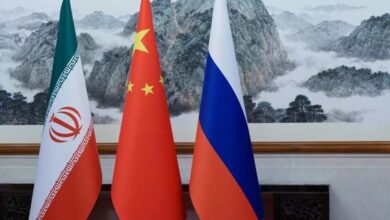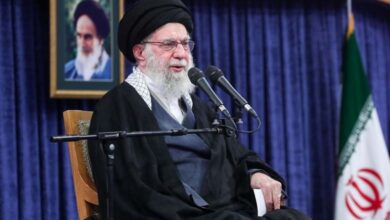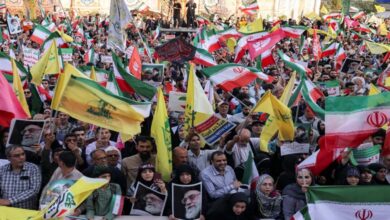Due to their strong influence, can Egypt, Saudi Arabia, and the UAE succeed in imposing balance within BRICS?
Egypt, Saudi Arabia, and the UAE joined BRICS
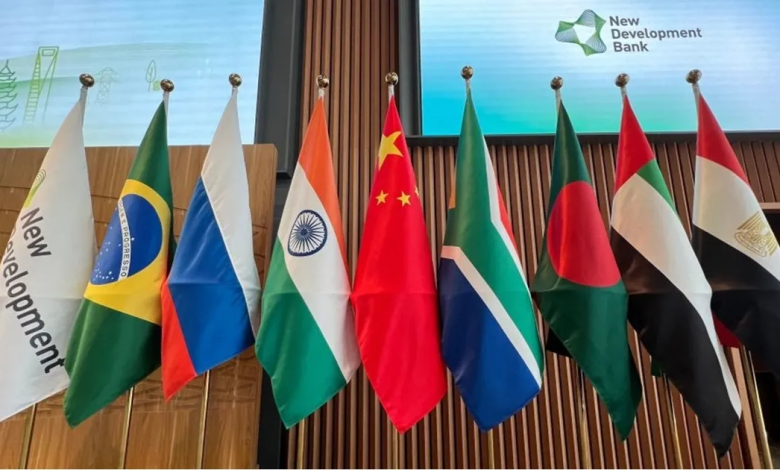
Analysts say India’s efforts to support the Global South could help prevent BRICS from becoming an anti-Western alliance, while competing with China’s goal of being a “real leader” of the bloc. However, New Delhi’s tilt towards the United States means it may ultimately distance itself from the bloc to try to get the best benefits from both sides. But with influential and impactful countries like the UAE, Saudi Arabia, and Egypt joining, these efforts may be thwarted.
New Influence
The Chinese newspaper “South China Morning Post” reported that late last month, the BRICS group of emerging economies accepted six new members at a summit in Johannesburg, in a decision widely described as an attempt to reshape the international system and provide a counterweight to the United States and its allies.
Starting in January, Argentina, Egypt, Ethiopia, Iran, Saudi Arabia, and the United Arab Emirates will join the current five members – Brazil, Russia, India, China, and South Africa – in a move described by Chinese President Xi Jinping as “historic.” Beijing has long been a key supporter of accepting new members, presenting an expanded BRICS as a means for the Global South to have a stronger voice in global affairs.
Anu Anwar, a non-resident fellow at the John K. Fairbank Center for Chinese Studies at Harvard University, said, “India supported efforts to include countries with major relations with it, such as the United Arab Emirates and Egypt, for fear that the expansion of BRICS might weaken Delhi’s influence within the bloc and rely only on countries opposed to the United States and Europe.”
She continued, “India’s goal here is to create a sub-group of countries working to establish balance within the bloc to prevent any significant bias against the West led by China.”
In light of India’s recent tilt towards the West, especially the United States, Anwar said that New Delhi could find itself increasingly isolated from BRICS if it gets much closer to Washington and its allies, especially if the fortunes of the West and the rest of the world diverge significantly.
She added, “India will need to take a clear stance from either side, but at the moment, it seems that India is trying to get as much as it can from both sides, rather than committing itself fully to either camp.”
While most Western bloc countries such as the Group of Seven and NATO have military alliances, Anwar pointed out that BRICS members do not have such a common security commitment, saying, “Any alliance without a common security commitment and military alliance cannot pose a real challenge to the West.”
Balance of Power
Jagannath Panda, head of the South Asia and the Indo-Pacific region at the Stockholm Center for South Asian and Indo-Pacific Affairs at the Institute for Security and Development Policy in Sweden, said that since India does not want BRICS to be dominated by China, it supported the inclusion of the United Arab Emirates and Egypt in the group to balance Chinese influence.
Panda added, “Delhi aims to have a few trusted partners within the BRICS forum that can reduce or challenge Chinese influence,” adding that the bloc enhances India’s standing as a “credible economy” from the Global South.
Jagannath explained that staying connected with emerging economies also helps significantly “reduce or build a credible global forum against China or its growing influence in global affairs.” While most Western bloc countries such as the Group of Seven and NATO have military alliances, Anwar pointed out that BRICS members do not have such a common security commitment, saying, “Any alliance without a common security commitment and military alliance cannot pose a real challenge to the West.”
However, analyst Margaret Myers pointed out that the growing divide between the United States and its allies and the increasingly China-led Global South was “concerning,” especially as Washington sought to compete more effectively with China in Latin America, Africa, and the Pacific and beyond.
Margaret Myers, director of the Asia and Latin America program at the Inter-American Dialogue, a Washington-based research center, described the summit as a “decisive test” of the Global South’s resolve to “tangibly change the status quo” by conveying “deep and growing concerns about the nature of the global economic system and its political ramifications.”
Myers continued, “These sentiments are growing, especially as China pushes the agenda.” She added that while the United States and its partners engage in the “risk-reduction exercise,” aimed at limiting economic ties with China and Russia, other parts of the world are seeking to distance themselves from the United States and its work.


